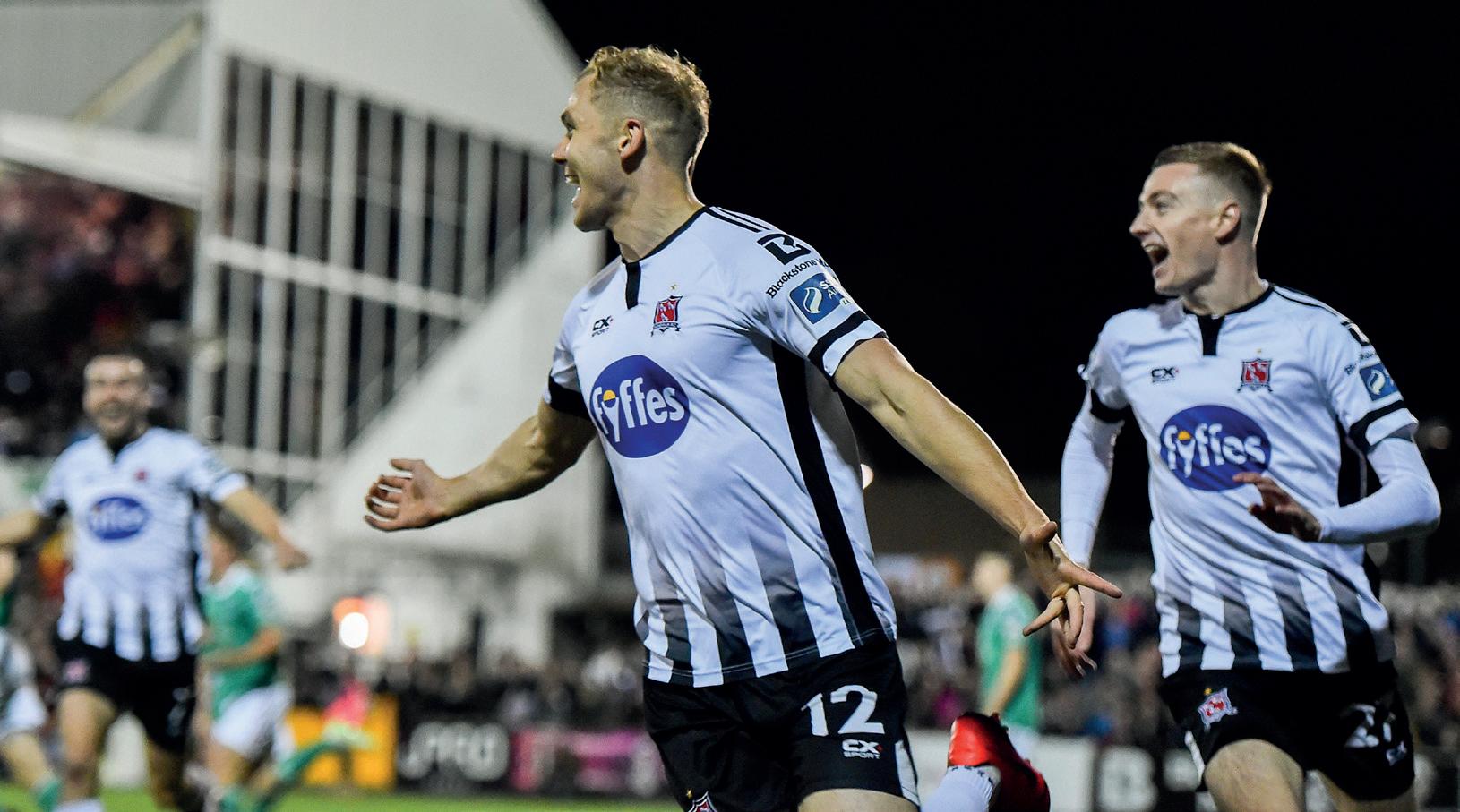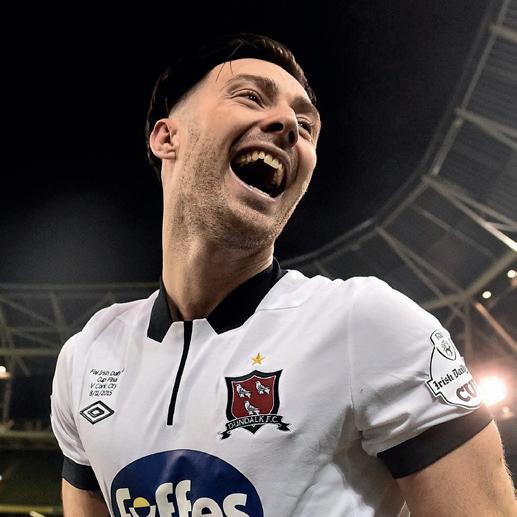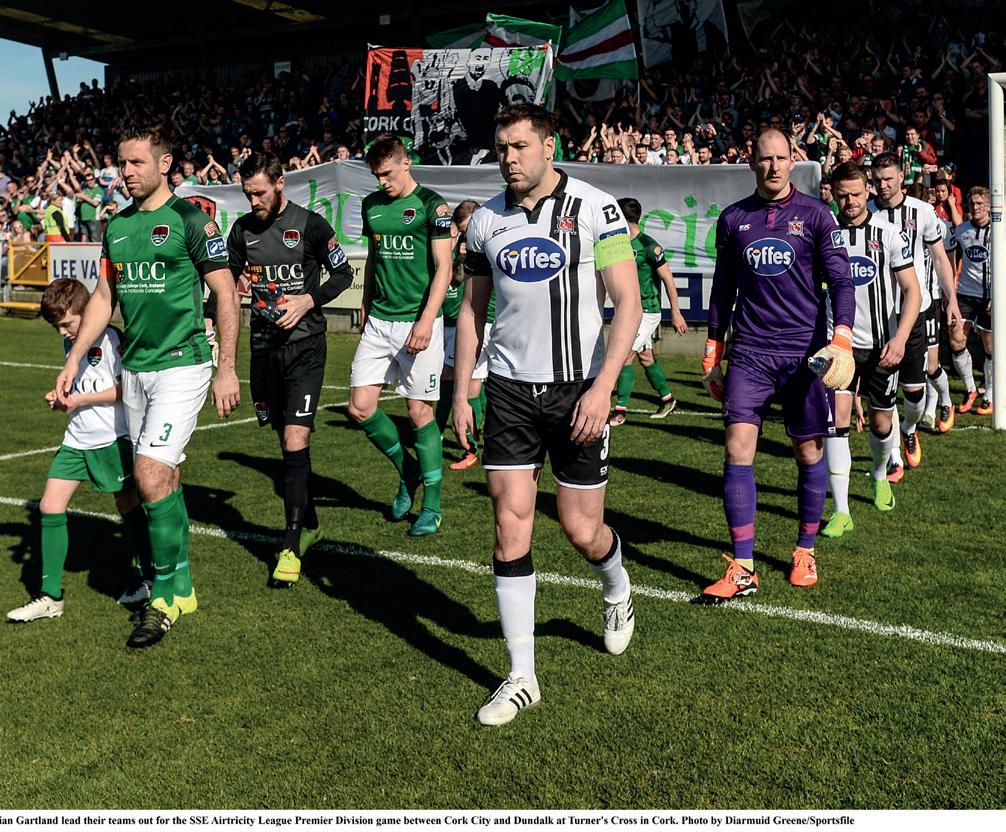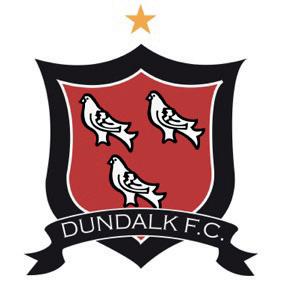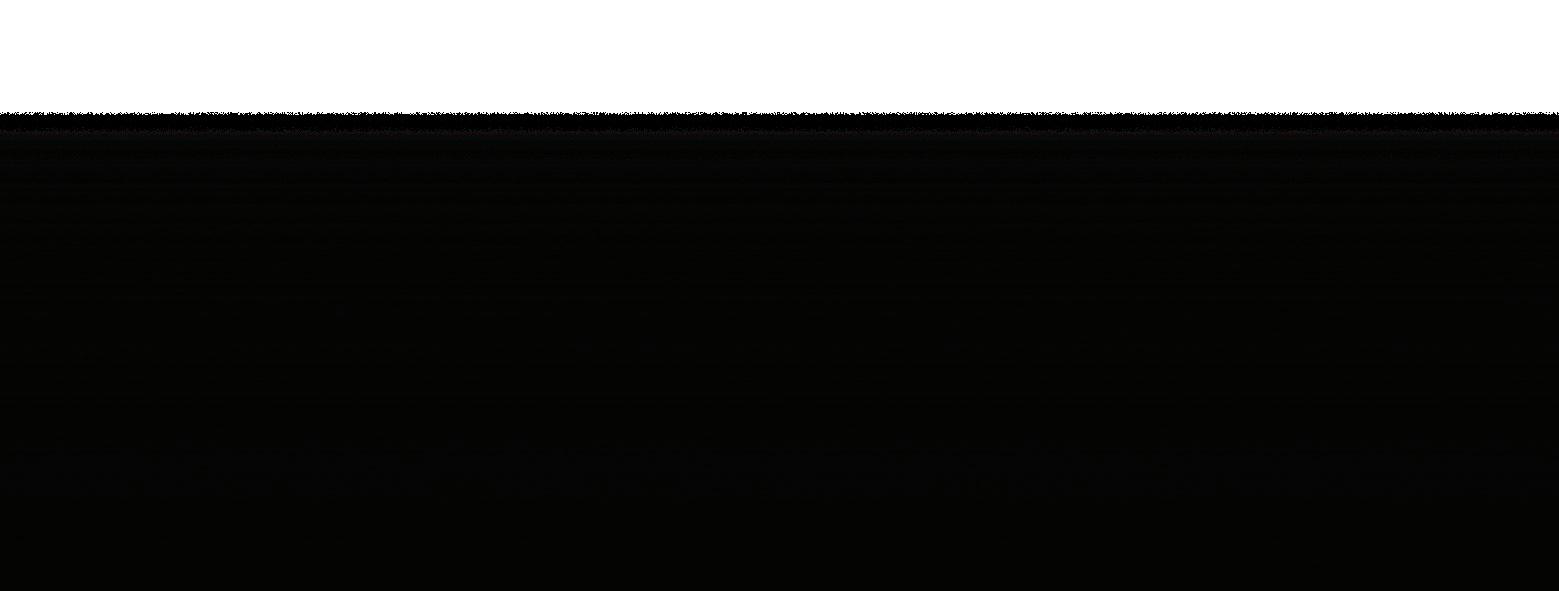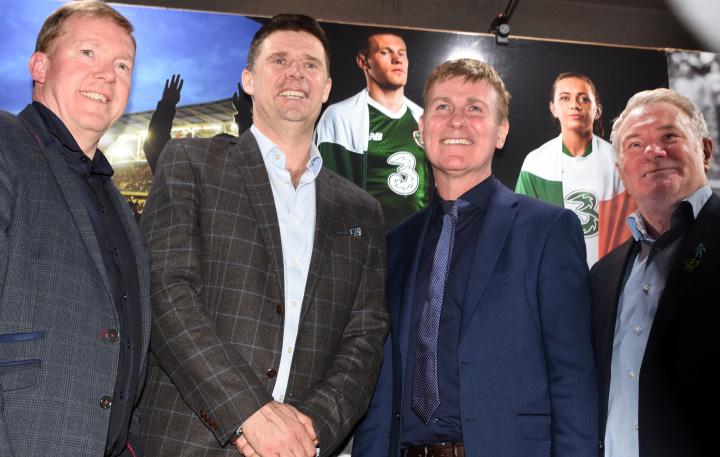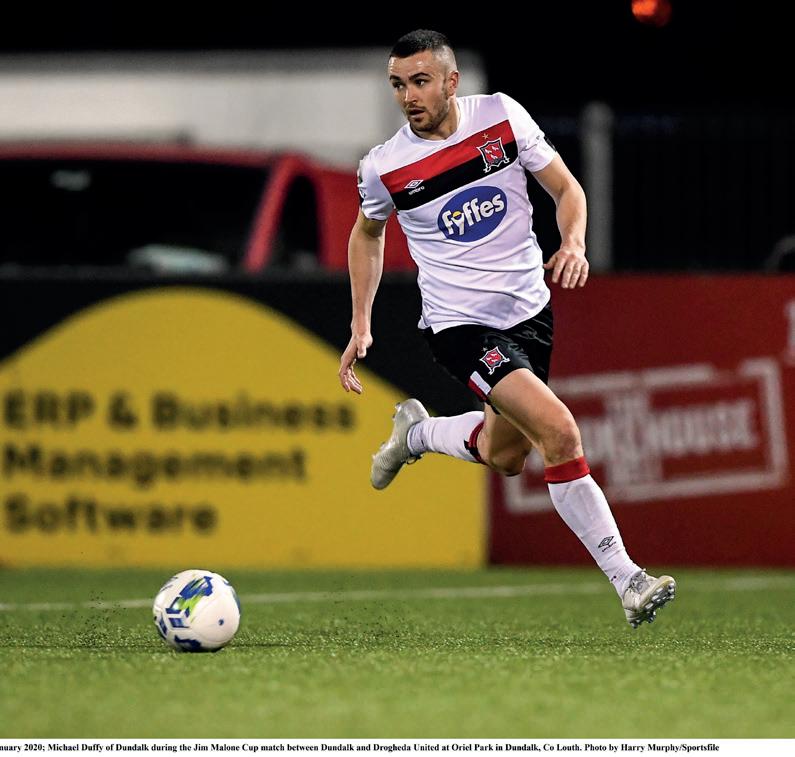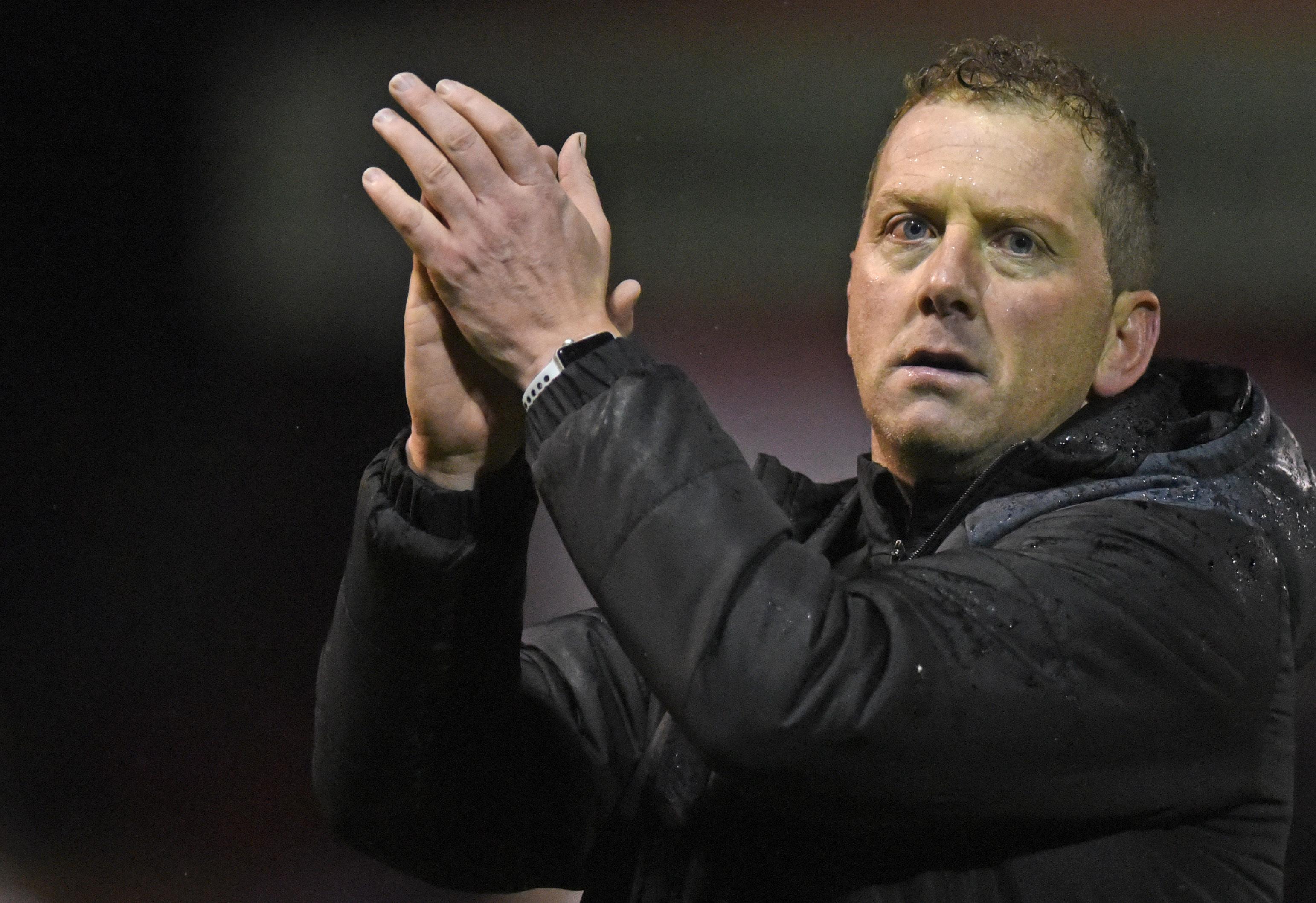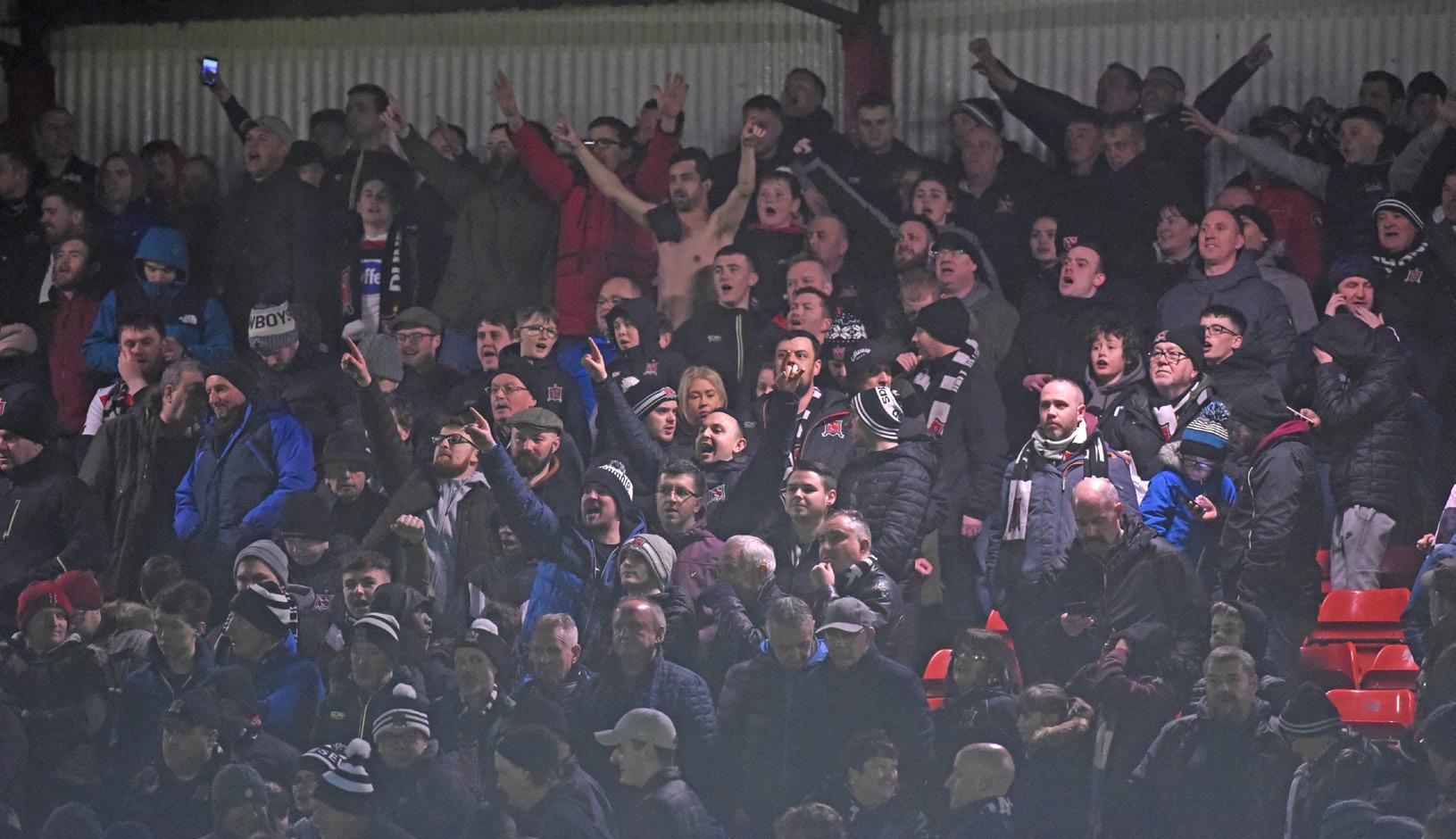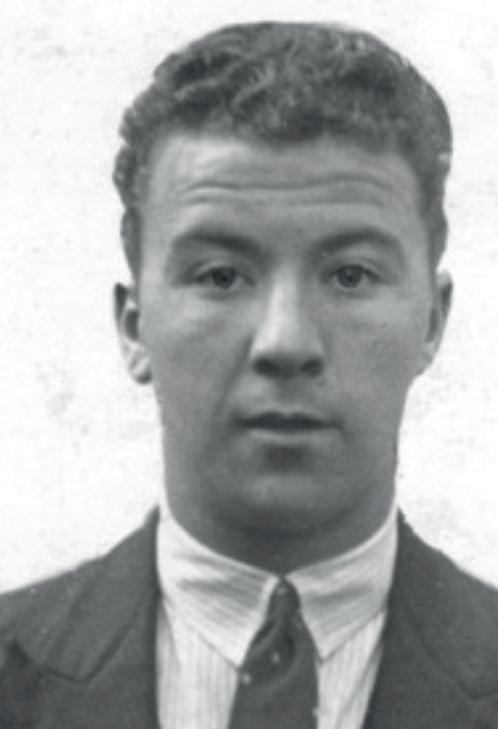
4 minute read
The Spectator
EXTRA TIME: THE SPECTATOR
IT WOULD BE EASY- AND THEREFORE TEMPTINGFOR THE SPECTATOR TO RIFF ON CORK CITY’S CURRENT DIFFICULTIES. AFTER HALF A DECADE OF TITANIC, TUMULTUOUS, TOE-TOTOE, TIT-FOR-TAT TIFFS THE CORK-DUNDALK BIG TWO RIVALRY PETERED OUT SOMEWHAT IN 2019. An article ostensibly profiling the away team could report gleefully on City’s slide down the table, the end of the John Caulfield era, the lack of European football and the challenging new financial reality facing our Corkonian friends, but frankly The Spectator doesn’t have the heart or the appetite to wallow in Munsterian schadenfreude. Perhaps it’s a sign of old age and maturity. Perhaps, more damningly, it reflects on City’s temporarily reduced status. Perhaps it’s just that The Spectator, whisper it, has a tiny, microscopic, infinitesimal soft sport for Cork. Not for Cork City FC so much as for Cork the city. The fact is that, despite the regular demise of its clubs, Cork is and always really has been a soccer hotbed. Indeed The Spectator has enjoyed many a football related trip to Ireland’s second city- well Ireland’s third city once the North realises, post-Brexit, the error of its ways and rejoins the rest 29 March 2019; Cork City and Dundalk players shake hands prior to the SSE Airtricity League Premier Division match between Dundalk and Cork City at Oriel Park.
Advertisement
of us. The Spectator is not old enough to have gone to see Cork Celtic, Cork Hibernians, Cork United, the other Cork United, the first Cork City, Cork FC, Fordsons, Cork Athletic, Cork Bohemians, Evergreen United, Cork Alberts, Cork Argyle or Cork and Hove Albion, but has enjoyed many a convivial trip to the Paris of Munster. (Naturally The Spectator could not resist a little dig at the smorgasbord of clubs that Leeside has produced over the decades, but then The Spectator has never been one to shy away from an easy joke. Add in the fact that a list of Cork’s exLeague of Ireland has an added attraction as filler when The Spectator has controversially been tasked with filling a second page of Dundalk FC Matchday Magazine by an editorial team showing all the sophistication and preplanned guile of a Jack Charlton, Dermot Keely or John Caulfield throwing Gary Doherty, Mick Doohan or Damien Delaney up front as an emergency striker while chasing the game.) Cork is proof that Ireland is a small country, big enough for one decent sized city in Dublin and one mediumsized city in Belfast, but too small a population to accommodate anything else but glorified towns. That is not a criticism. The fact that Cork is effectively a large town means that it is more homely and manageable than a bigger city. You can even make the argument that Cork is Ireland’s finest big town. It is less self-consciously, cloyingly “craic” than Kilkenny or Galway, more sophisticated, cosmopolitan and entertaining than any place outside Dublin, and with enough atmosphere, history and character to ensure a distinctive experience. Cork has all this and yet is small enough to traverse on foot for the most part. Turner’s Cross is a 20 minute stroll from
the centre, pretty much everything you’d want to do or see in Europe’s most underwhelming Capital of Culture is within striking distance. Even dear, bizarre, introverted, unique Cobh and it’s equally unique Ramblers are a mere 24 minutes away by train. (Of course any overnighter to see Dundalk at Cobh must be based in Cork city, because let’s face it, staying overnight in Cobh is the starting point for contemporary horror movie directed by M Night Shaylaman.) From a football point of view Leeside has it’s attractions too. The Cross is a fine little ground that almost looks like a proper football stadium, when viewed from the right angle. The city drips with football history, the Mardyke and Flower Lodge, now deconsecrated as Pairc Ui Rinn, both hosted Ireland internationals, and the names of Roy Keane, Denis Irwin, Noel Cantwell, Florrie Burke, Seanie McCarthy, Miah Dennehy, Frank O’Farrell and Liam Miller among many, many others lend weight to Cork’s soccer tradition. From a Dundalk FC point of view Cork holds much historical significance. Dundalk’s first League of Ireland game was played at Ballinlough against the Ford tractor factory works team Fordsons. The league title was sealed at Turner’s Cross against Cork Celtic in 1977 and unforgettably against Cork City in 1991. In recent years the Cross has witnessed many an epic battle with Richie Towell, Brian Gartland, Chris Shields and Daryl Horgan helping Dundalk to more silverware while Seanie Maguire, Conor McCormack and the beloved Mark McNulty have endeavoured to thwart the white tide. It’s been emotional, entertaining, frustrating, thrilling, appalling, wonderful, devastating and exciting- it’s been a longdistance rivalry to savour. At the end of 2012 The Spectator was one of seven Dundalk fans in Cork to watch a dismal side slide towards a relegation playoff. Football is cyclical, Cork will be back at the business end before too long. Sure you’d miss them if they weren’t.
6 September 2019; Georgie Kelly celebrates after scoring Dundalk’s first goal during the SSE Airtricity League Premier Division match between Dundalk and Cork City at Oriel Park.
